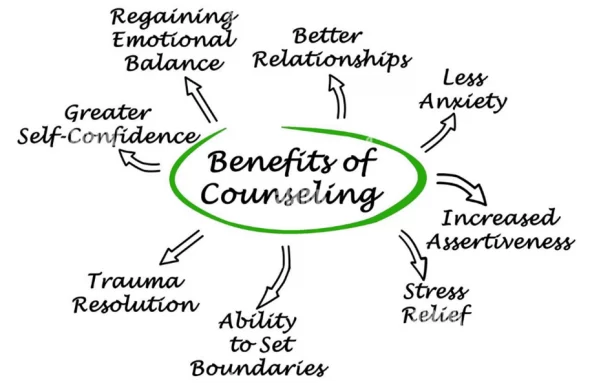The benefits of Integrative Counselling & Psychotherapy
Integrative counselling and psychotherapy offers flexibility and a focus on the individual as a whole. It helps you learn to integrate and understand different aspects of yourself including the mind, body, relationships, spirituality and environment. It encourages a more holistic point of view.
Integrating different therapeutic modalities means therapy is tailored to meet your specific needs. As an integrative therapist, my approach relies on the importance of the relationship between us. It is built on empathy, honesty and respect.

Therapeutic Modalities
Person-centred therapy, or client-centred therapy, is a type of psychotherapy that emphasises your subjective experience and your innate capacity for self-awareness and personal growth. Person-centred therapy comes under the humanistic umbrella, and humanistic psychology believes we all contain untapped potential. Based on the theory of Carl Rogers, person-centred therapy is rooted in the belief that the individual has all the answers. A safe and non-judgemental environment are contributing factors to enable a person to find their own answers.
Person-centred therapy helps facilitate your growth, allowing you to develop solutions to your problems and reach your full potential. You actively take control during each therapy session as you focus on maximising your ability to find solutions during the therapeutic process, which encourages positive change within yourself. The goals of this practice include increasing self-awareness, self-esteem, and self-acceptance, leading to improved emotional resilience and more meaningful relationships with others.
Gestalt therapy focuses on the immediate here and now and how exploring this helps you. It considers how your past affects and influences your feelings in this moment. Gestalt is based on the principle that everyone is whole and made up of mind, body and soul.It draws on the philosophical idea that the whole is none other than the sum of its parts.
Gestalt therapy is interactive and feedback-driven; it can help with most issues, including anxiety, depression, low self-esteem and relationship problems. l use this form of psychotherapy to increase your awareness to gain freedom and self-direction in the present.
Psychodynamic therapy focuses on unconscious processes in your present behaviour. The goals of psychodynamic therapy are self-awareness and an understanding of the influence of the past on present behaviour. It helps you understand how past experiences, the unconscious mind, and impulses shape your current feelings and behaviour.
Psychotherapy aims to bring the unconscious mind into consciousness to gain a deeper insight into your life and the challenges you're experiencing here and now. With this insight, you can change negative patterns to help you move forward.
CBT works on the way you think and the way you behave. By changing or reconditioning our thoughts or behaviour, it is possible to overcome specific issues.CBT helps turn negative thoughts into helpful ones for you to take action instead of being constrained in avoidance behaviours and negative self-talk. CBT improves your problem-solving skills and widens your perspective while teaching you strategies to manage your daily well-being.
The core idea behind CBT is that your thoughts and actions create your emotional states. These emotional states lead you to either feel stuck and do nothing or do things you regret.With CBT, it is possible to change your thinking and behaviours to stop the negative process.
Transactional analysis (TA) helps people develop better self-awareness, communication skills, and improve how they relate to others. TA is designed to promote personal growth and change. It is considered a fundamental therapy for well-being and for helping individuals to reach their full potential in all aspects of life. TA therapy is based on the theory that each person has three ego-states: parent, adult and child. These are used along with other key transactional analysis concepts, tools and models to analyse how individuals communicate and to identify what interaction is needed for a better outcome.
Throughout TA therapy, you will work directly on problem-solving behaviours, while developing day-to-day tools for finding constructive, creative solutions. The ultimate goal is to ensure that you regain absolute autonomy over your life. TA can be incredibly useful for people because it helps them to understand the dynamics of their relationships. By understanding the underlying dynamics of their interactions with others, people can gain insight into the root causes of their problems and work towards resolving them.
Acceptance and commitment therapy (ACT) is an action-oriented approach to psychotherapy that stems from traditional behaviour therapy and cognitive behavioural therapy. You learn to stop avoiding, denying, and struggling with inner emotions and, instead, accept that these deeper feelings are appropriate responses to certain situations. They should not prevent people from moving forward in their lives.
So you can begin to accept hardships and commit to making necessary changes in your behaviour, regardless of what is going on in your lives and how you feel about it. By taking steps to change your behaviour while, at the same time, learning to accept your psychological experiences, you can eventually change your attitude and emotional state.
Mindfulness focuses on increasing awareness of the thoughts, feelings, and actions that hinder our progress. A mindfulness approach helps you observe and focus on the present moment non-judgmentally. It can help you maintain control, especially during emotionally overwhelming experiences.
Mindfulness practice includes meditation, this can help us understand the thinking process and become less reactive to repetitive thought patterns. Gentle breathing exercises, mindful walking and eating are used to heighten our awareness, these help us become more present during our daily life. Mindfulness can be a powerful tool to increase your tolerance for painful emotions, enhancing your emotional well-being.
There is a stream of new research appearing which provides us with the latest facts about how we function. This information can be beneficial to gain insights into why we behave in certain ways. I am an avid student within this field and share anything useful with my existing clients.
An example of such research is the negativity bias, also known as the negativity effect. This is a cognitive bias that, even when of equal intensity, things of a more negative nature (e.g. unpleasant thoughts, emotions, or social interactions; harmful/traumatic events) have a greater effect on one's psychological state and processes than neutral or positive things.. In other words, something very positive will generally have less of an impact on a person's behaviour and cognition than something equally emotional but negative.
Relational therapy aims to help individuals struggling to develop and maintain stable, healthy, and secure relationships. Relational therapy enables you to become more aware of past experiences and patterns of behaviour that prevent you from developing healthy relationships, as well as helping you create the required skills to improve your relationships.
Polyvagal theory emphasises how the autonomic nervous system regulates our health and behaviour, especially the vagus nerve. The theory describes the physiological and psychological states that underlie our daily behaviour and challenges related to our wellness and mental health. By applying Polyvagal theory to our personal lives, we can understand how safety, co-regulation, and connection are paramount to a healthy human experience.
Polyvagal theory shifts the focus from reflecting on "events" to understanding "responses" to the events that are embedded in our physiology (nervous system) and core beliefs about self. By understanding how our nervous system learned to respond in the best way possible to harmful events, we can recognise how these responses continue to show up and discover new ways of teaching our nervous system to respond in a way that leads to health and restoration.
Ready to Begin?
If you're considering counselling, I invite you to get in touch. Feel free to contact me with any questions about how counselling works or to arrange an initial assessment. This allows us to discuss why you're thinking of coming to counselling, explore if it could be helpful for you, and determine if I'm the right therapist to support you.
You can also call me on 07467 865934 if you'd prefer to leave a message or speak directly before arranging an initial appointment. I'm happy to discuss any queries you may have. All enquiries are usually answered within 24 hours, and all contact is strictly confidential, utilizing secure phone and email services.
©Insight Counselling & Psychotherapy
powered by WebHealer
